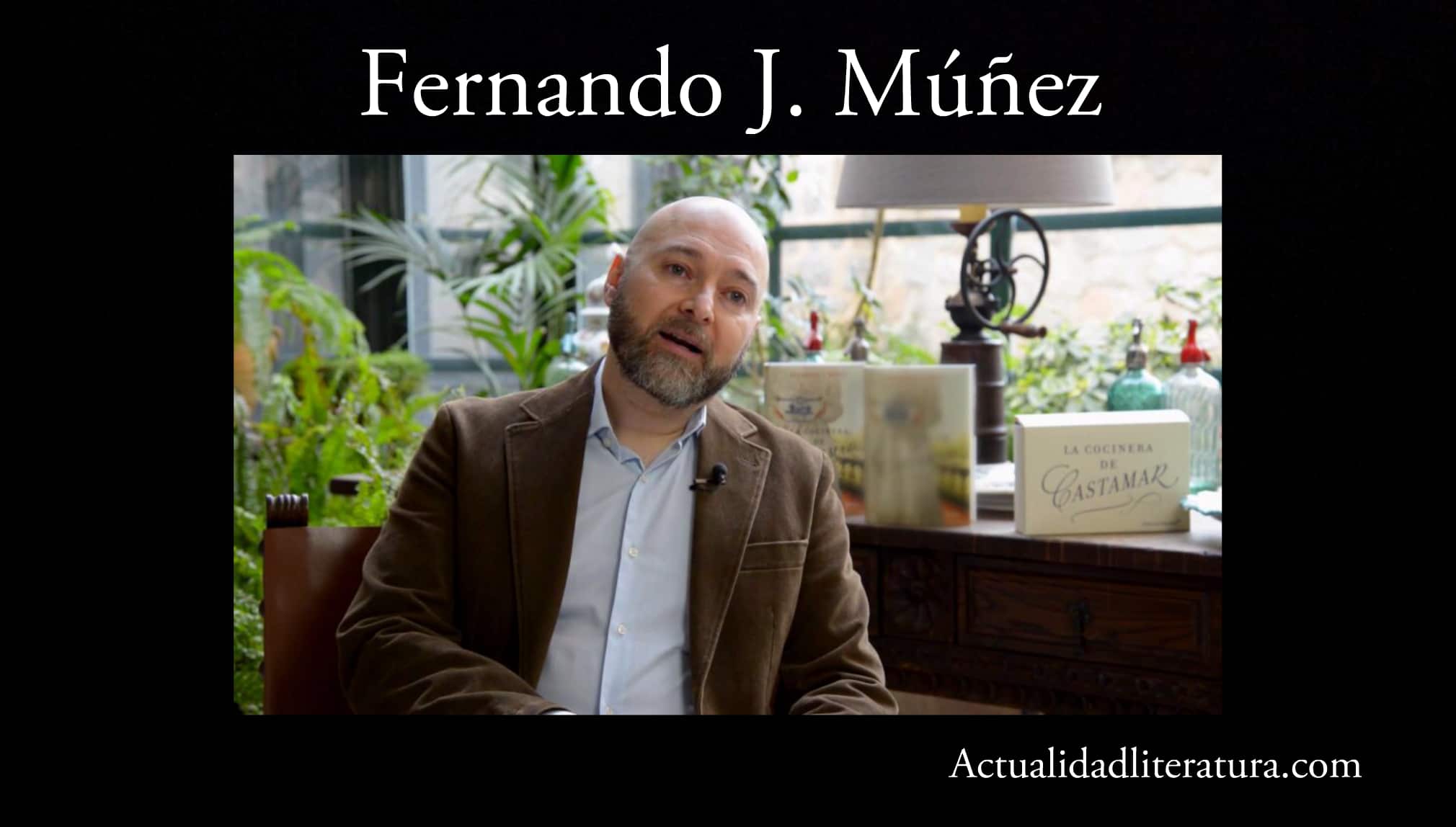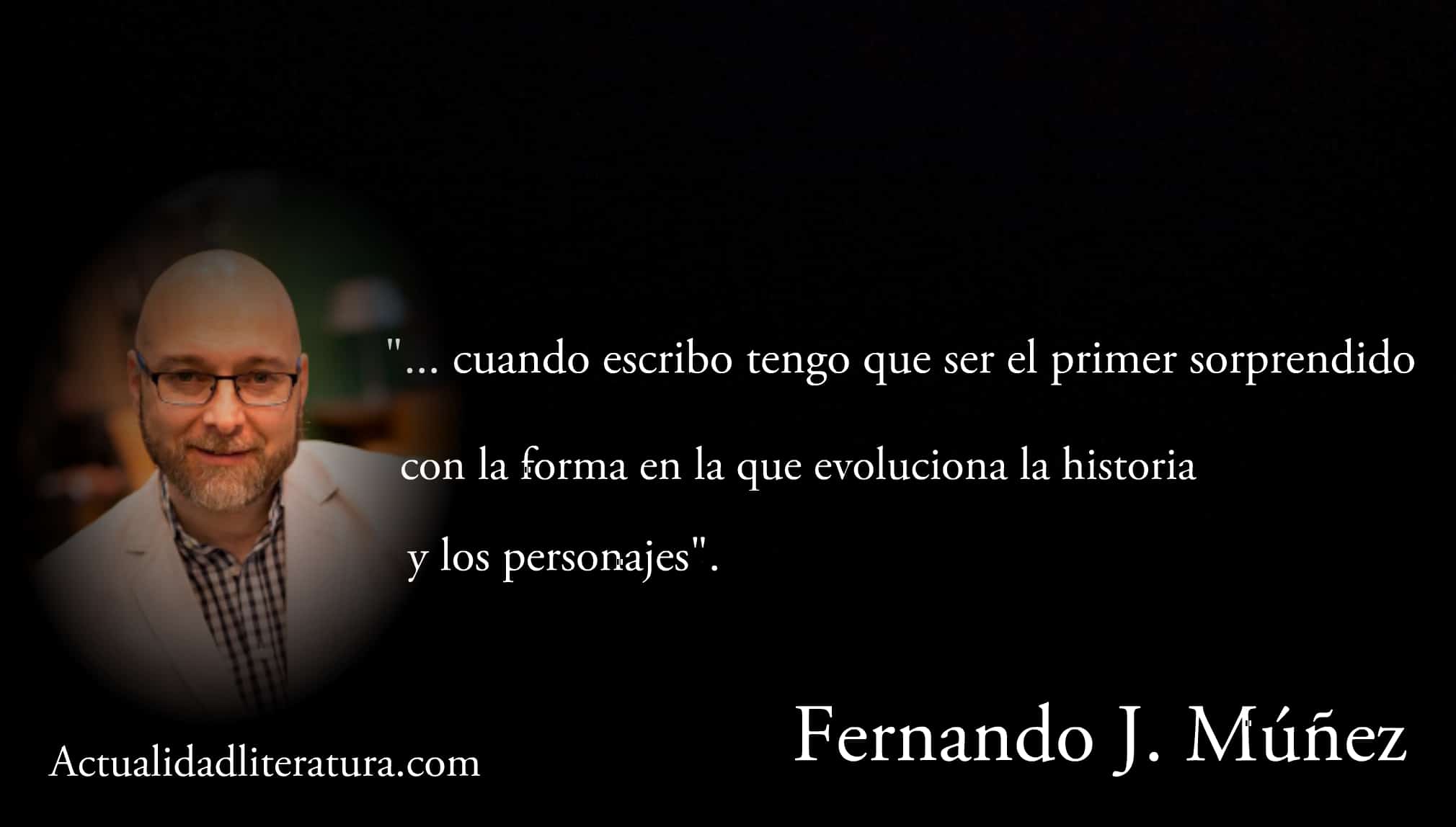The Cook Of Castamar Book Amazon

Fernando J. Munez.
The cook of Castamar is a novel by the Castilian author Fernando J. Múñez. Published in 2019, it is a story set in the oppressive context of XNUMXth century Spanish society under the reign of Felipe V. It is a classic narrative loaded with eroticism, deceptive political plots, prejudices and the bourgeois artful typical of that epoch.
Nor is the story lacking in the forbidden romances, intrigues and courage of a few determined to insubordinate confronting the status quo. Therefore, this title has all the "ingredients" of a very exciting and entertaining read. In improver, This title represents a quite meaning gender leap for a author best known for his publications for children or young people.
Table of Contents
- 1 About the author, Fernando J. Múñez
- 1.1 Books past Fernando J. Múñez
- 1.two The television series La cocinera de Castamar
- 2 Argument from Castamar'southward Cook
- iii Analysis and summary
- three.ane Domicile
- 3.2 The codes and the impositions
- 3.3 The Duke
- 3.4 A resentful and oppressed club
Nigh the author, Fernando J. Múñez
He was born in Madrid in 1972. He has a caste in Philosophy, although his start jobs were in the world of advertisement and in the product of short films. Further, completed his instruction in Cinematography in the The states In 2002 he launched a startup Editorial dedicated —among other objectives— to attracting and supporting emerging authors.
Since and so, Múñez has participated in the publication of more than 50 children's and youth titles. In 2009 he formally began his career as a writer with Monsters and fantastic beings. Later, he gained of import notoriety in the creative sphere of Spain later on directing the feature film Norns
Books past Fernando J. Múñez
- Monsters and fantastic beings
- Dragons
- Wizards and witches
- The Marmadú dollhouse
- Stories for children
- Stories for girls
- Medieval knights
- Vampires
- Goblins
- Trolls
- Samurais
- The cook of Castamar
The tv set series of The melt of Castamar
At the start of May 2020, the Astresmedia channel announced the acquisition of the rights to Múñez's novel. Co-ordinate to paper data La Vanguardia, Michelle Jenner volition be in the skin of Clara Belmonte (the protagonist). Although the product is still in the casting stage, its premiere has been planned for the fall of 2021.
Of course, This news increased the already enormous public interest in this work. Notwithstanding, any marketing intention does not backbite from the merits or quality of the story achieved by the Madrid author. After all, the spread of literature in the digital historic period spans all sorts of platforms, including podcasts, social media, and social media services. streaming.
Statement from The cook of Castamar

Castamar's melt.
You can buy the book hither: The melt of Castamar
Clara Belmonte is an unfortunate young woman with a complicated past. Despite having received a good education, she is forced to wait for work because her father died in the war. Apart from the subsequent precarious economical situation, the expiry of his father left him with an important psychological sequel: agoraphobia. Therefore, she is terrified of open spaces.
In search of a livelihood, Clara comes to the Duchy of Castamar every bit a kitchen officer. There, Don Diego, the lord of the mansion, spends his days immersed in immeasurable aloofness, having lost his wife in an accident x years ago. So the melt and the duke establish a special relationship through food and the senses every bit the scene in the manor begins to unravel.
Analysis and summary
Dwelling
The October ten of 1720, Clara Belmonte came to the Duchy of Castamar to work as a kitchen officer. She completed all the style from Madrid to the margins of the town of Boadilla under some bales of hay and without opening his eyes. She only dared to await effectually when she was sure she was protected by a roof.
In this point, Miss's hush-hush becomes articulate: she suffers from agoraphobia. The immature woman developed the trauma afterward learning of her father's death in the war. This death acquired the entire Belmonte family to fall from grace. The caste or the intellectual training received nether the protection of his father, who was a well-known dr. in Madrid guild, was useless.
The codes and the impositions
Fortunately for the young woman, she learned to cook from an early age and that trade became her manner to escape poverty. Information technology was not a pocket-sized outcome for the time, because at that time women only had iii options to survive. The first (almost mutual) was to alive under the protection of a male person effigy, that is, to become a man'southward wife, female parent or girl.
The second alternative for an XNUMXth century woman was to become a nun, married to God (or in the service of a human, in practical terms). Ultimately, those less fortunate were forced into the world of prostitution and, in the "best" of cases, ended upward as courtesans. Out of the iii options mentioned, inappreciably any woman could support herself.
The Knuckles
Don Diego and Clara gradually established a special relationship through food. Little by little, the gastronomic connection led to the approach through other sensory bridges, leading to sensuality and, finally, an intense eroticism. At the same time, the knuckles and the other inhabitants of Castamar gradually realized that she was a cultured person.

Phrase by Fernando J. Múñez.
Then Don Diego's mood went from a funereal aloofness to the enthusiasm of someone who rediscovered the season of life. However, intrigues, misgivings, and suspicions arose as an inevitable consequence. Because any "unseemly slip" in the life of the aristocrat could be used as an excuse to discredit his lordship and weaken his political position.
A resentful and oppressed order
Obviously, a romance between a feudal lord and a "lower caste" woman could not be accepted at that time. What's more, such relationships were considered the product of sinful lust and even heresy. Almost ever - under a conspicuously manlike conception - women were accused of "tempting" their masters (without considering the real facts).
For these reasons, The melt of Castamar perfectly portrays each of the repressive edges of a completely impermeable society. This book has a clear feminist perspective. But —in the words of Múñez himself— "it is not only dedicated to women, information technology is fabricated for men to read as well, for women to read, for all kinds of people to read it".
The content of the article adheres to our principles of editorial ethics. To report an error click hither!.
Source: https://www.actualidadliteratura.com/en/Castamar%27s-cook/


0 Response to "The Cook Of Castamar Book Amazon"
Post a Comment